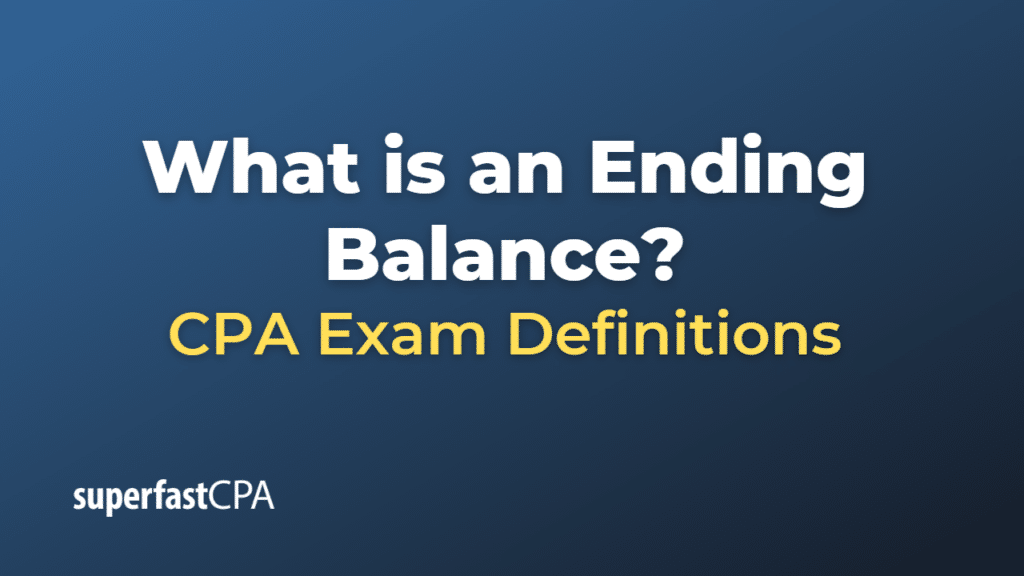Ending Balance
An ending balance, in accounting, refers to the amount remaining in a particular account at the end of a specific period, often a month, quarter, or year. It can apply to any type of account, including checking and savings accounts, credit card accounts, loans, or investment accounts.
The ending balance is calculated by taking the beginning balance at the start of the period, adding any deposits or credits made to the account during the period, and then subtracting any withdrawals or debits.
For example, if you have a checking account with a beginning balance of $1,000, deposit $200 during the month, and make withdrawals or payments totaling $500, your ending balance for that month would be $700 ($1,000 + $200 – $500).
In the context of a balance sheet, the ending balance of an asset, liability, or equity account at the end of a period becomes the beginning balance for the start of the next period. In this way, ending balances provide a link from one accounting period to the next.
It’s important to regularly review the ending balances of your accounts to ensure you are managing your finances effectively and to detect any potential issues, such as fraud or accounting errors.
Example of an Ending Balance
Let’s take an example involving a personal checking account:
Let’s say your checking account has a balance of $2,500 at the beginning of May. Over the course of the month, you deposit your paycheck of $3,000 into the account and withdraw or make payments totaling $4,200.
Here’s how you would calculate the ending balance for May:
- Start with the beginning balance: $2,500
- Add any deposits or credits to the account: $2,500 + $3,000 = $5,500
- Subtract any withdrawals or debits from the account: $5,500 – $4,200 = $1,300
So, the ending balance in your checking account at the end of May is $1,300.
This ending balance will then become your beginning balance for June, and the process starts again for the new month. Keeping track of these balances helps you manage your personal finances and ensures that you’re staying within your budget.













